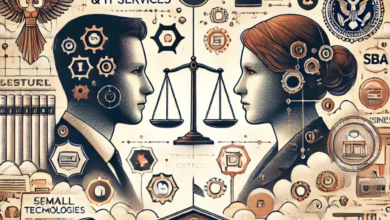Margie Washichek: A Trailblazer’s Influence on 20th-Century Civil Rights

Introduction
In the spectrum of civil rights history, amidst the luminaries whose names are often spoken, the story of Margie Washichek— a figure whose monumental contributions remain relatively unsung. This comprehensive exploration seeks to illuminate the life and impact of Margie Washichek, highlighting her pivotal role in shaping civil rights in the 20th century.
Early Life and Formative Years
Margie Washichek was born in the late 1930s in the Deep South of the United States, an area steeped in the harsh realities of segregation and racial injustice. Growing up in Mississippi, she experienced firsthand the systemic inequalities that plagued African Americans in her community. The indignities and disparities she witnessed during these formative years galvanized her commitment to civil rights, setting her on a path of advocacy and resistance.
The Catalyst for Change
Washichek’s journey into the heart of civil rights activism was triggered by a personal experience of discrimination that directly affected her and her family. In the early 1960s, while attempting to register to vote, she encountered oppressive practices designed to disenfranchise African American voters. This incident marked a turning point in her life and spurred her to challenge these injustices legally.
Legal Battle and National Attention
Margie Washichek’s decision to take legal action brought her case to the forefront of the civil rights movement. Her lawsuit addressed not just the voting disparities but also broader issues of racial discrimination in public services and employment. The specifics of her legal challenge involved contesting Jim Crow laws that were symbolic of the systemic racism prevalent in the South at the time.
Her case quickly gained national attention, drawing support from prominent civil rights organizations and leaders. Legal scholars and activists saw her fight as symbolic of the broader struggle against institutionalized racism in the United States.
Courtroom Victory and Its Repercussions
The culmination of Washichek’s legal battle was a significant courtroom victory with far-reaching implications. The court’s decision vindicated her claims and set legal precedents that contributed to dismantling similar discriminatory practices nationwide. Her victory was a testament to the judiciary’s power to enact social change and catalyzed further civil rights legislation, including strengthening the Voting Rights Act.
Legacy and Influence
Despite her critical role in these transformative events, Margie Washichek’s contributions have not been as widely recognized or celebrated as those of her contemporaries. This oversight may be attributed to several factors, including the regional focus of her activism and the overshadowing prominence of other civil rights figures who led more publicized movements.
However, the influence of Washichek’s actions extends beyond her lifetime. She inspired a generation of activists and laid foundational legal strategies in civil rights cases long after her legal battles ended. Her story is a compelling example of how individual courage and resolve can affect significant societal shifts.
Reflections and Relevance Today
Her legacy resonates decades after Margie Washichek’s landmark case, particularly in contemporary discussions about race, justice, and equality in America. The challenges she faced echo in today’s social and political climate, where issues of racial discrimination and voting rights remain at the forefront of national discourse.
Conclusion
Margie Washichek’s life and legacy embody the essence of the civil rights movement: a relentless struggle for justice and equality. By examining her contributions, we gain a deeper understanding of the past and insights into the ongoing fight for civil rights. Her story serves as both a beacon of hope and a call to action, reminding us of the profound impact one individual can have on the arc of history.
Frequently Asked Questions
1. What led Margie Washichek to become involved in civil rights activism?
Margie Washichek was propelled into civil rights activism by personal experiences of racial discrimination, mainly when she encountered barriers to voting in Mississippi.
2. What were the primary outcomes of Margie Washichek’s legal battle?
Her courtroom victory set legal precedents that helped dismantle institutionalized racial discrimination, influencing subsequent civil rights legislation and policies.
3. Why is Margie Washichek less well-known than other civil rights figures?
Factors include the regional nature of her activism and the media’s focus on other leaders and events that were more publicized during the civil rights movement.
4. How has Margie Washichek’s legacy influenced modern civil rights movements?
Her legal strategies and moral courage continue to inspire contemporary civil rights advocacy, particularly concerning voting rights and systemic equality.
5. What can current civil rights activists learn from Margie Washichek’s story?
Margie Washichek’s dedication and strategic use of the legal system highlight the importance of resilience, legal recourse, and grassroots activism in achieving social change.
You May Also Read: https://techzeper.com





